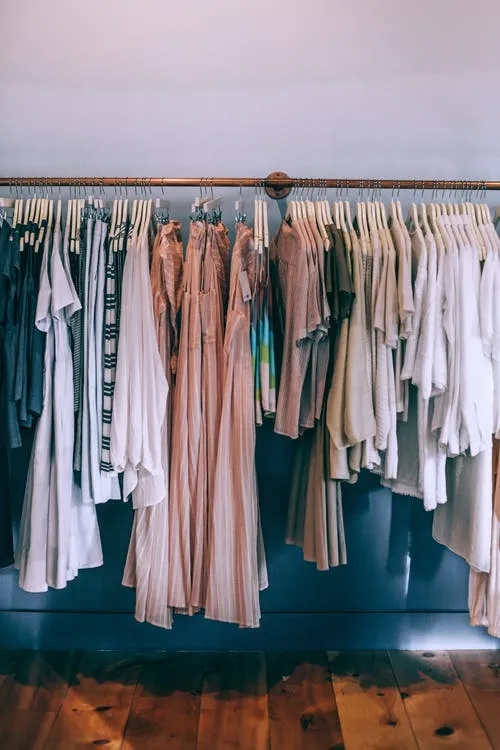Once a civil services aspirant, this entrepreneur started a women’s clothing brand by saving from allowance
Lavanya The Label was started in 2019 by civil services aspirant Pooja Choudhary. The Rajasthan-based ethical wear brand ships pan-India and overseas. It will soon open its western wear website - Nore21.
After completing her Master’s in Business Administration from Chiba University, Tokyo, Pooja Choudhary was eyeing India’s coveted Civil Services examinations.
In fact, when she returned in 2017, her parents enrolled her in a coaching programme in Jaipur, Rajasthan, so she could study and clear the country’s toughest competitive exam.
However, destiny had other plans.
Pooja realised that Civil Services were not her cup of tea and decided to explore a business opportunity.
Since Jaipur and a few other cities in Rajasthan are known for textiles and apparel, Pooja decided to launch a women’s clothing brand, , in 2019.
Today, Lavanya is a brand to look out for in the women’s fashion segment. It has 167,000 followers on Instagram, with a pan-India presence, and sees Delhi, Mumbai, and Bengaluru as its top cities in India that generate the most orders. Lavanya also exports to countries like the US and Australia through its website.
Headquartered in one of the country’s most prominent textile hubs, Bhilwara, the brand sells ethnic wear, including kurta sets, suits, sarees, and lehengas, besides footwear, nightwear, western wear, etc.
This year, Pooja is also introducing a website solely for western wear.
The first-time entrepreneur claims the company’s website and Falguni Nayar-founded Nykaa have helped the brand grow. She also tells SMBStory that selling on ecommerce platforms is extremely challenging.
Despite these stumbling blocks, she has managed to change the gears of the company. Here’s how.
From the beginning
Pooja says living in hostels for 18 years meant she had zero experience in fashion. “ I grew up wearing mostly uniforms,” she says.
Moreover, she would save Rs 5,000 of the Rs 15,000 allowance her parents would give every month for starting her business.
In the beginning, Pooja would design the clothes and give them to the tailors for stitching. She had hired four tailors for this purpose. Owing to budget constraints, she would wrap and pack the items, besides tracking the delivery. Now, she contract manufactures the clothes from units located in Bhilwara.
Although she made a website, the dilemma of “how to enter the market?” plagued her. “I started looking at how my competitors were selling. Most of them were selling online, so I started tapping into platforms such as Myntra, Nykaa, and The Wedding Brigade.”
Pooja also focused on the brand’s Instagram page, and influencer marketing helped grab the eyeballs, generate demand, and the orders kept soaring.
Pooja claims in the first year, the brand received about 50 orders a day. And all her hard work paid off when she clocked Rs 80 lakh in revenue the same year. In FY21 and FY22, it reported revenue worth Rs 8 crore and Rs 9 crore, respectively, the brand claims.
Today, Pooja’s parents don’t mention the Civil Services examinations. Instead, they support her in running the business, she says.

The challenges of ecommerce
According to Eazy Leads, India has over 19,000 ecommerce websites. And, by 2040, nearly 95 percent of the purchases will happen through ecommerce, Statista highlighted.
While India is in the middle of an ecommerce boom, with immense scope for businesses to scale up, Pooja exposes a dark side to this channel.
She says ecommerce websites allowing the option for “returning” to the customers has put brands at a great disadvantage.
“Customers wear clothes and return them. It is a big loss for us,” she says, adding that some of these returned clothes are stained with makeup or are dirty. Other times, a customer keeps a blouse or dupatta and claims that they never got one.
In fact, the brand was threatened to be sued in the consumer court by customers when it tried to reason with them.
Moreover, it is hard for the brands to bear the high commissions charged by the ecommerce platforms, with additional costs like transportation.
When Lavanya was listed on Amazon, the brand’s return percentage was somewhere between 20-40 percent. And two years ago, Pooja decided to delist the company from the ecommerce platform.
“We also did this because the type of customers coming on Amazon wants reasonably priced products,” she says. Lavanya’s clothes are priced, starting from Rs 1,000 and can go up to Rs 14,000.
However, Pooja is all praises for Falguni Nayar’s Nykaa Fashion — the fashion retail platform of the beauty and personal care company.
Talking about how the platform played a role in scaling up Lavanya, Pooja says, “My sales in the first year came from Nykaa Fashion only. Moreover, people at Nykaa not just helped me with selling clothes on their platform but also mentored me on how to build and scale up the business.”
The road ahead
According to Statista, the Indian women’s apparel industry is slated to reach $39 billion by 2025.
The COVID-19 pandemic, too, has given an irrevocable push to this industry as the last two years saw women buying clothes via ecommerce. Today, numerous brands, including Loom, Jaipuradha, Rust Orange, and Ambrae, have carved a niche in the market.
Attesting to this trend, Pooja says the demand on online platforms has grown 4X today compared to the pre-pandemic times. During the Diwali season in 2021 and 2022, her factory was running almost 24X7.
Pooja is focused on making Lavanya a prominent brand for women aged between 18 and 35 years. For the next five years, she will reinvest her profits in scaling up the brand, which includes launching a new western wear website — Nore21. “Twenty-one (21) is the age of freedom for girls,” she adds.
Pooja is also gearing up for this year’s festive season, beginning with Rakhi and ending with Diwali.
“I want to make sure we manufacture enough to meet the demand, and that no customer would have to cancel the order,” she says. Her long-term vision is to enter into the bridal category and also set up showrooms.
Edited by Suman Singh









